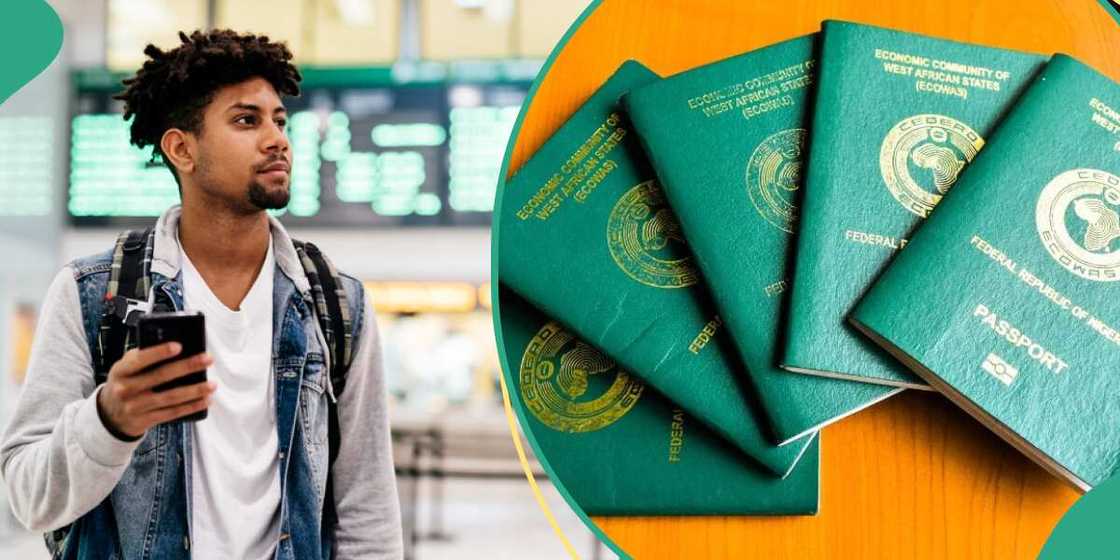Nigerians Lose Over N75 Billion Annually on Rejected US, UK, Other Visa Applications
An investigation has shown that Nigerians pay more than N75 billion annually on non-refundable visa application fees to countries like the United States, the United Kingdom, and those in the Schengen region.
Despite these high fees, over 60 per cent of applications are reportedly denied, forcing desperate applicants to reapply multiple times, each time with fresh payments.

Source: Getty Images
US visa costs Nigerians billions annually
These losses continue to mount, leaving many Nigerians emotionally and financially drained.
For US visa applications alone, a conservative estimate of 300 applicants per day paying N299,700 each amounts to N21.5 billion annually.
Despite the steep cost, many applicants face rejection during interviews, leading to repeated payments without any guarantee of approval.
The trend reflects a vicious cycle that has become a lucrative source of revenue for foreign embassies.
UK, Schengen applications add to financial burden
UK visa applications add another estimated N13.3 billion annually to the total drain, while Schengen countries rake in about N11.6 billion.
These figures exclude priority services and long-term visa applications, where fees run into hundreds of thousands and even millions of naira.
These embassies appear to have discovered a steady stream of income from the wave of Nigerian travellers.
Emotional spending and peer pressure drive demand
Experts say many Nigerians travel not just for valid reasons like business or education, but to show off or keep up with peers.
A travel consultant described it as an “ego trip,” driven by social media pressure, village rivalry, and class competition. “Our people often travel just because a neighbour did—it’s about validation and status,” he said.
Not all travellers are frivolous spenders
Despite the trend, there are still many genuine travellers, including business people, students, and professionals with long-term visas.
Travel consultant Mrs. Shalom Asuquo noted that students and serious business travellers form a sizable portion of applicants, especially those heading to the UK, Canada, the US, and China.
She added that additional services like VIP appointments and health insurance also drive up the total cost.
Japa syndrome and economic frustration
Experts argue that Nigeria’s economic decline and youth unemployment are pushing more citizens to seek greener pastures abroad.
Since 2016, worsening governance and the 2020 crackdown on protests have driven up asylum and student visa requests. It’s a mass exodus many call the “japa syndrome.”
Over 3.6 million Nigerians have left
Recent data from travelanders.com and NIMC shows a 563% rise in Nigerians abroad with National Identification Numbers between 2022 and 2023.
The Nigerian Immigration Service recorded over 3.6 million exits in just two years.
Unless the government addresses economic challenges, this trend may persist, leaving foreign embassies to profit off Nigerians' desperation.
UK embassy in Nigeria breaks silence on new visa rule
Legit.ng earlier reported that the British High Commission in Nigeria has broken its silence over the growing concerns surrounding potential changes to UK visa regulations.
The embassy has reaffirmed its commitment to facilitating legal migration and curbing immigration abuse in a statement released on Wednesday, May 7.
A spokesperson for the British High Commission addressed the growing speculation, emphasising that the UK immigration system is regularly reviewed to balance support for legal migration with deterrence against immigration abuse, The Punch reported.
Source: Legit.ng




